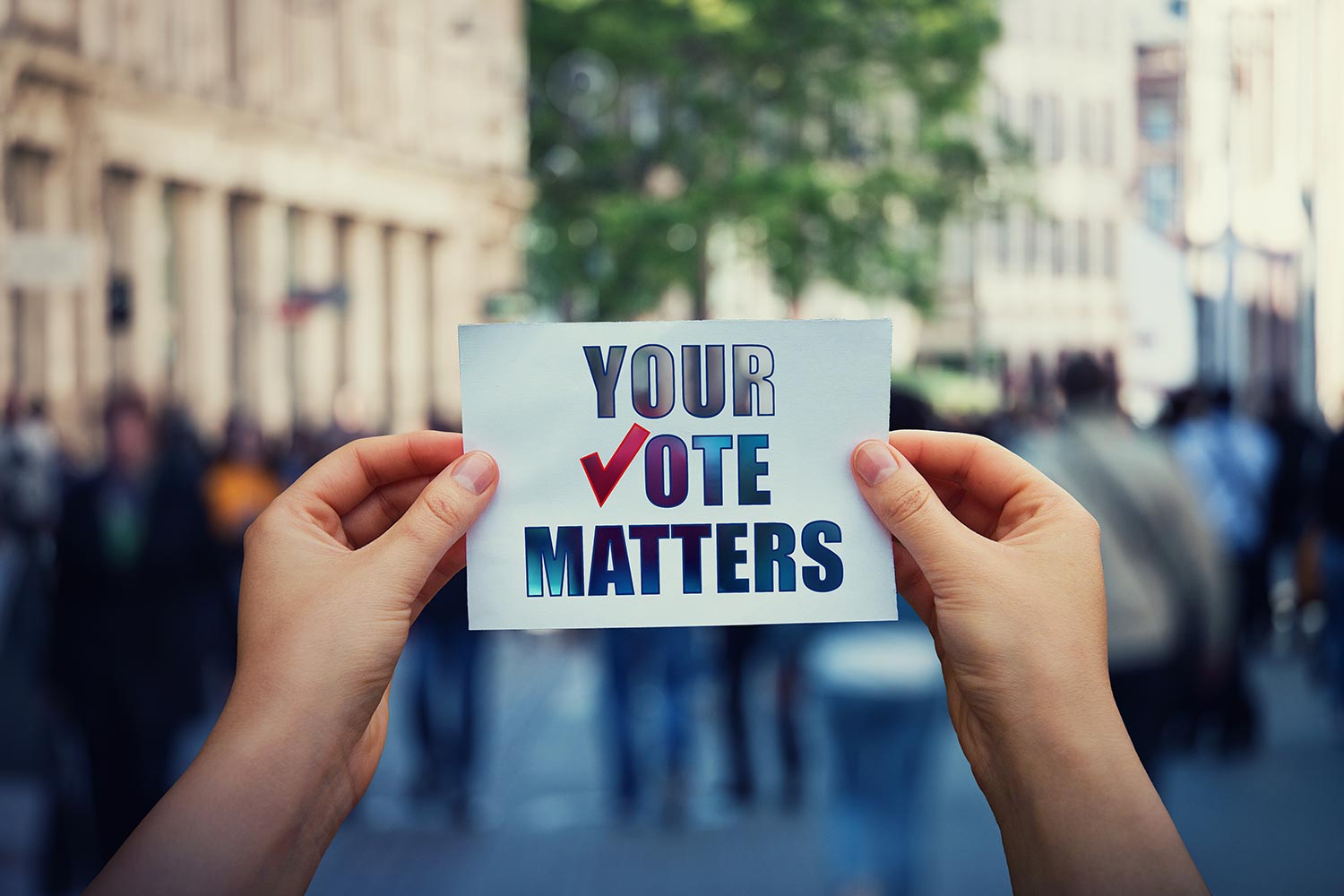Election Year Messages Nonprofits Can Use
How can your nonprofit encourage Gen Z to get out and vote for the issues important to you in 2020? Messaging this group responds to.

How nonprofits can motivate young people to participate in our democracy.
As national elections drawn near, many are looking at data and wondering: what will it take to get Generation Z (Gen Z), young Americans born after 1996 just after the Millennials, into the voting booth?
Research indicates they’re as excited to vote and as engaged in voting activity as any other generation, if not more so. Historically, however, only about half of eligible voters in America cast ballots. In fact, the highest-reported voter turnout rates were 63% in 1960—the John F. Kennedy presidential election—and 53% for the 2018 midterm elections. But young voters have consistently failed to turn out to the polls and make their voices heard compared to much more reliable older generations. If we want young people to more actively participate in our democracy, we need to know how to motivate them.
New research tells us that issue-based and empowerment messaging is key. In my role with the Ad Council, I recently led a team of researchers in partnership with Democracy Works, whose vision is to make voting a simple, seamless experience so that no one misses an election. The work came in response to the Ad Council identifying a gap in research-based messaging designed to increase voting activity—and its recognition that much of the current messaging isn’t backed by evidence.
We tested various types of get-out-the-vote messages used in the 2018 midterm election to determine what resonates with potential voters. First, we found that every generation responds most strongly and positively to the same approach: voter-turnout messaging focused on issues (“I vote because we face important issues that deserve my attention and action”). Across all generations, this way of framing was most appealing, believable, relevant, relatable, and the one most likely to inspire voting.
However, the second-most appealing and inspiring message frame differed by age group. While Baby Boomers and Gen X respond most positively to messages of self-identity—voting as part of who they are—younger generations (Millennials and Gen Z) respond best to messages that they matter in society and therefore so does their vote—essentially an empowerment narrative.
Gen Z Wants to Matter
This means voter messages that appeal only to an American’s sense of patriotism and civic duty will not work as well with Gen Z as it will with their parents and older siblings. It’s not that these young Americans aren’t patriotic; they consider voting part of the responsibility of being an American. But they also feel and demonstrate their patriotism by getting involved in issues they care about. Our research found that because they fervently view voting as one form of their “social activism,” they want to hear and believe that they and their vote matters. Moreover, once young Americans become aware of an issue that concerns them, a majority then choose to act—and voting is the number-one action they take.
Everyone Can Offer an Empowerment Message
If Gen Z believes in voting, then whose messages can inspire them to go to the polls? Anyone—a nonprofit, a local government, a business, or a community group—can help raise voting rates among younger generations if they use the right messaging.
2016 was the first presidential election in which Gen Z could participate. In research over the past year, we found that most young Americans who took action in support of an issue did so because a cause or organization asked them. Of those who did not act, one of the top reasons given was, “Nobody asked me to.” This reflects the power organizations hold. Just imagine how many more young people would vote if they heard empowering messages about voting and issues from more sources!
Our research also found that some organizations are afraid of appearing partisan for taking a stand. In attempts to avoid backlash, they use voter-turnout messaging that is generic and vague, such as, “There’s a lot at stake in this election, so vote for the issues that matter to you and your community.” By taking what they believe to be the safe route, organizations will not be heard or seen as participating in issue-related dialogue at all.
Nonprofits have an edge here. Research in 2018 and 2019 revealed that young Americans trust nonprofits more than social movements, corporations, and local and federal governments, with social movements a close second. Nonprofits, then, are especially well-positioned to influence Gen Z to participate in our democracy.
Besides, when half the eligible voting population in the U.S. doesn’t vote, partisanship isn’t the country’s biggest challenge. In 2020, 37% of the electorate will be Gen Z and Millennials, meaning these richly diverse generations can have a profound impact on the direction of our country. We need to begin now if we want to empower them to engage and vote.
Voting locally on issues is crucial to creating change at the state, regional, national, and global levels—and feeling like you matter.
Here are some examples of messaging to empower Gen Z to act:
- If you care about gender equity, help elect lawmakers that do, too. Your vote matters!
- Don’t argue with Uncle Bob about climate change. Turn that energy into action. [Specific call to action]
- Your voice is the most powerful weapon we have in the immigration fight. Make sure your friends can vote on Election Day!
- In the war against poverty and homelessness, every vote counts. Including yours.
About the Author
Derrick Feldmann is a speaker, researcher, and advisor for cause engagement and social good. He is author of Social Movements for Good: How Companies and Causes Create Viral Change and co-author of Cause for Change: The Why and How of Nonprofit Millennial Engagement. Feldmann serves as the managing director of INFLUENCE|SG. He leads the research initiative Cause and Social Influence and founded and led the Millennial Impact Project, a decade-long study of how the next generation of supporters and consumers engage with causes. His chapter Moving Millennials to Act appears in the newly released 2nd edition of Nonprofit Management 101.
Articles on Blue Avocado do not provide legal representation or legal advice and should not be used as a substitute for advice or legal counsel. Blue Avocado provides space for the nonprofit sector to express new ideas. Views represented in Blue Avocado do not necessarily express the opinion of the publication or its publisher.











